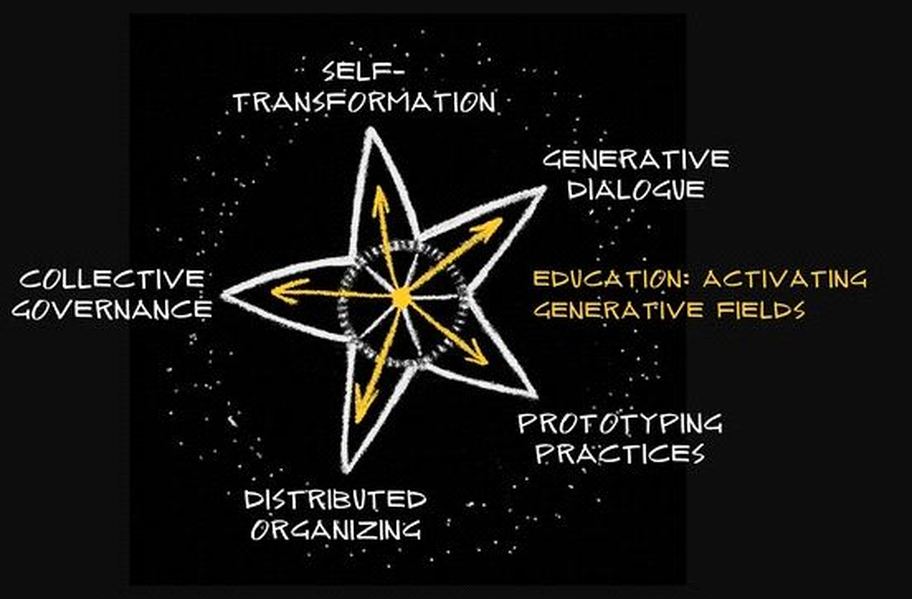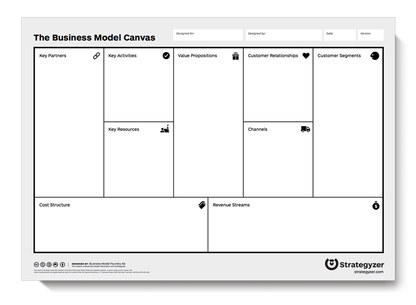We use the values of the Lean Movement to
inspire Collective Governance.
inspire Collective Governance.
☆ Collective Governance
LEAN CULTURE | Collective Governance from the values of the Lean Movement:
Lean Manufacturing | Toyota (Kiichiro Toyoda)
The aim of lean manufacturing is to eliminate all processes that do not create value. The basic insight of lean thinking is that if you train every person to deliver more value at less expense you simultaneously develop everyone's confidence, competence and ability to work effectively with others.
Lean Startup | Silicon Valley (Eric Reis)
Eric Ries brought to the startup world the idea, based on Lean Manufacturing, that it is quantitatively more efficient to work backward from the business results you are working to achieve than it is to work forward from an idea for a product or service.
LEAN CULTURE | Collective Governance from the values of the Lean Movement:
Lean Manufacturing | Toyota (Kiichiro Toyoda)
The aim of lean manufacturing is to eliminate all processes that do not create value. The basic insight of lean thinking is that if you train every person to deliver more value at less expense you simultaneously develop everyone's confidence, competence and ability to work effectively with others.
Lean Startup | Silicon Valley (Eric Reis)
Eric Ries brought to the startup world the idea, based on Lean Manufacturing, that it is quantitatively more efficient to work backward from the business results you are working to achieve than it is to work forward from an idea for a product or service.
Business Model Canvas | University of Lausanne (Alexander Osterwalder)
The Business Model Canvas is a strategic management template for developing new or documenting existing business models. It was initially proposed by Alexander Osterwalder and is based on his PhD thesis on Business Model Ontology.
Humanity's Prevailing Business Model:
Inequality by Design
Conversations which start in Davos, a Swiss mountain resort where governments, business, trade unions and NGOs gather at the start of every new year, can sometimes turn into a dialogue which can change the world.
The Davos week began with Oxfam detailing increasing inequality 62 people holding the same wealth as half the world's population.
The ITUC Report Scandal, looked inside the supply chains of fifty of the world's largest supply chains to expose a hidden workforce of ninety four per cent - the workers who live on poverty wages and work in unsafe or insecure jobs to generate the profits for the richest corporates.
And Amnesty International depicted the depravity of child labour in the supply chain of extractive industries.
This is inequality by design.
As we contemplate a world which is still choosing to deploy technological innovation in a way that deepens inequality and divisions within and between nations, we need to set global foundations back on track.
The world has reached a tipping point.
Sixty per cent of global trade is now driven by big business which, depends on a business model based on exploitation and abuse of human rights in supply chains. When the largest corporations directly employ only six per cent of the workers they depend on it's an easy way to displace responsibility.
As WEF 16 gets underway in Davos we ask CEOs of major companies to take a look at the business model they preside over. They must know their profits are too often driven by low wage levels that people cannot live on; that these profits risk safety with the result of indefensible workplace injuries and deaths; that these profits are increased by tax evasion or tragically linked to pollution of community land and water even while their lobby teams are turning Governments against the rule of law that would hold them to account.
When minimum living wages, bargaining for fair wages, pensions and job security are denied in too many countries it is not rocket science to understand the drivers of inequality.
When a textile worker like Rina from the Philippines tells me she cannot tell her 12 year old son if she will be home to cook him a meal or say goodnight because she is forced to work extra shifts without notice - this is not decent work.
And when men gathering seafood for many of our tables are enslaved on boats in Indonesian waters without living quarters and sanitation for months on end there is no hope for them of decent work without a new model of global trade - a business model with a moral compass.
There are two discussions at Davos that seek to change the prevailing model.
The first lead by the Prime Minister of Sweden, Stefan Lofven, will engage business, unions and Government leaders in the challenge to strike a 'global deal' where people, rights and sustainability through social dialogue is possible.
The second in a conversation with young business leaders, lead by the B Team's Richard Branson, about a business model that is 100% human at work - a new social contract based on the UN Business and human rights principles that realises the core values of respect, equality, growth, belonging and purpose.
Both these initiatives seek a radical shift in the way we treat people at work. Both are founded on the belief that we are never going to be able to achieve the UN's Sustainable Development Goals and a better world for all unless we start by affording people in the workplace rights, dignity and respect.
And both conversations will tackle the imperative to build a future of work inclusive of refugees and other migrants seeking a safe and secure life.
Most significantly both are founded on dialogue - social dialogue always works.
The ITUC is proud to support both these ground breaking initiatives and call on Governments to sign on to the global deal and business to join its counterpart 100% Human At Work.
Business leaders need to take the sons and daughters test. A new model of business and economic development must ensure everybody's sons and daughters are treated as we would expect for our own.
A new business model based on old principles of social justice where people matter - now that's a revolutionary way to reduce inequality.
The Davos week began with Oxfam detailing increasing inequality 62 people holding the same wealth as half the world's population.
The ITUC Report Scandal, looked inside the supply chains of fifty of the world's largest supply chains to expose a hidden workforce of ninety four per cent - the workers who live on poverty wages and work in unsafe or insecure jobs to generate the profits for the richest corporates.
And Amnesty International depicted the depravity of child labour in the supply chain of extractive industries.
This is inequality by design.
As we contemplate a world which is still choosing to deploy technological innovation in a way that deepens inequality and divisions within and between nations, we need to set global foundations back on track.
The world has reached a tipping point.
Sixty per cent of global trade is now driven by big business which, depends on a business model based on exploitation and abuse of human rights in supply chains. When the largest corporations directly employ only six per cent of the workers they depend on it's an easy way to displace responsibility.
As WEF 16 gets underway in Davos we ask CEOs of major companies to take a look at the business model they preside over. They must know their profits are too often driven by low wage levels that people cannot live on; that these profits risk safety with the result of indefensible workplace injuries and deaths; that these profits are increased by tax evasion or tragically linked to pollution of community land and water even while their lobby teams are turning Governments against the rule of law that would hold them to account.
When minimum living wages, bargaining for fair wages, pensions and job security are denied in too many countries it is not rocket science to understand the drivers of inequality.
When a textile worker like Rina from the Philippines tells me she cannot tell her 12 year old son if she will be home to cook him a meal or say goodnight because she is forced to work extra shifts without notice - this is not decent work.
And when men gathering seafood for many of our tables are enslaved on boats in Indonesian waters without living quarters and sanitation for months on end there is no hope for them of decent work without a new model of global trade - a business model with a moral compass.
There are two discussions at Davos that seek to change the prevailing model.
The first lead by the Prime Minister of Sweden, Stefan Lofven, will engage business, unions and Government leaders in the challenge to strike a 'global deal' where people, rights and sustainability through social dialogue is possible.
The second in a conversation with young business leaders, lead by the B Team's Richard Branson, about a business model that is 100% human at work - a new social contract based on the UN Business and human rights principles that realises the core values of respect, equality, growth, belonging and purpose.
Both these initiatives seek a radical shift in the way we treat people at work. Both are founded on the belief that we are never going to be able to achieve the UN's Sustainable Development Goals and a better world for all unless we start by affording people in the workplace rights, dignity and respect.
And both conversations will tackle the imperative to build a future of work inclusive of refugees and other migrants seeking a safe and secure life.
Most significantly both are founded on dialogue - social dialogue always works.
The ITUC is proud to support both these ground breaking initiatives and call on Governments to sign on to the global deal and business to join its counterpart 100% Human At Work.
Business leaders need to take the sons and daughters test. A new model of business and economic development must ensure everybody's sons and daughters are treated as we would expect for our own.
A new business model based on old principles of social justice where people matter - now that's a revolutionary way to reduce inequality.
GETTING HUMANITY ON THE SAME PAGE
Introducing the One-Page
Business Model Canvas for Lean Culture:
|



